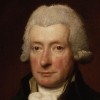Precision of communication is important, more important than ever, in our era of hair-trigger balances, when a false, or misunderstood word may create as much disaster as a sudden thoughtless act.
Quotations about:
precision
Note not all quotations have been tagged, so Search may find additional quotes on this topic.
I protest, for about the hundredth time, against the slipshod method of quoting a mere author’s name, without any indication of the work of that author in which the alleged quotation may be found. Let us have accurate quotations and exact references, wherever such are to be found. […] A quotation without a reference is like a geological specimen of unknown locality.
Walter William Skeat (1835-1912) British philologist and cleric
Notes and Queries, 6th Series, vol. 9 (1884-06-21)
(Source)
It is of no use to possess a lively wit if it is not of the right proportion: the perfection of a clock is not to go fast, but to be accurate.
Luc de Clapiers, Marquis de Vauvenargues (1715-1747) French moralist, essayist, soldier
Reflections and Maxims [Réflexions et maximes] (1746) [tr. Lee (1903)]
(Source)
We cannot define anything precisely! If we attempt to, we get into that paralysis of thought that comes to philosophers who sit opposite each other, one saying to the other, “You don’t know what you are talking about!”. The second one says, “What do you mean by know? What do you mean by talking? What do you mean by you?” and so on.
Richard Feynman (1918-1988) American physicist
The Feynman Lectures on Physics, Volume I, 8-2 “Motion” (20 Oct 1961)
(Source)
For it is the mark of an educated man to look for precision in each class of things just so far as the nature of the subject admits; it is evidently equally foolish to accept probable reasoning from a mathematician and to demand from a rhetorician scientific proofs.
[πεπαιδευμένου γάρ ἐστιν ἐπὶ τοσοῦτον τἀκριβὲς ἐπιζητεῖν καθ᾽ ἕκαστον γένος, ἐφ᾽ ὅσον ἡ τοῦ πράγματος φύσις ἐπιδέχεται: παραπλήσιον γὰρ φαίνεται μαθηματικοῦ τε πιθανολογοῦντος ἀποδέχεσθαι καὶ ῥητορικὸν ἀποδείξεις ἀπαιτεῖν.]
Aristotle (384-322 BC) Greek philosopher
Nicomachean Ethics [Ἠθικὰ Νικομάχεια], Book 1, ch. 3 (1.3.4) / 1094b.24ff (c. 325 BC) [tr. Ross (1908)]
(Source)
Possibly the source of this spurious Aristotle quote. (Source (Greek)). Alternate translations:
For the man of education will seek exactness so far in each subject as the nature of the thing admits, it being plainly much the same absurdity to put up with a mathematician who tries to persuade instead of proving, and to demand strict demonstrative reasoning of a Rhetorician.
[tr. Chase (1847), ch. 1]
It is the mark of an instructed mind to rest satisfied with the degree of precision which the nature of the subject admits and not to seek exactness where only an approximation is possible.
[Source (1852) - earliest version of this frequent translation I found.]
A man who has been well trained will not in any case look for more accuracy than the nature of the matter allows; for to expect exact demonstration from a rhetorician is as absurd as to accept from a mathematician a statement only probable.
[tr. Williams (1869)]
For an educated person will expect accuracy in each subject only so far as the nature of the subject allows; he might as well accept probable reasoning from a mathematician as require demonstrative proofs from a rhetorician.
[tr. Welldon (1892), ch. 2]
For it is the mark of an educated man to require, in each kind of inquiry, just so much exactness as the subject admits of: it is equally absurd to accept probable reasoning from a mathematician, and to demand scientific proof from an orator.
[tr. Peters (1893)]
For it is the mark of an educated mind to expect that amount of exactness in each kind which the nature of the particular subject admits. It is equally unreasonable to accept merely probable conclusions from a mathematician and to demand strict demonstration from an orator.
[tr. Rackham (1934)]
For it is characteristic of a well-educated person to look for the degree of exactness in each kind of investigation that the nature of the subject itself allows. For it is evident that accepting persuasive arguments from a mathematician is like demanding demonstrations from a rhetorician.
[tr. Reeve (1948)]
For a well-schooled man is one who searches for that degree of precision in each kind of study which the nature of the subject at hand admits: it is obviously just as foolish to accept arguments of probability from a mathematician as to demand strict demonstrations from an orator.
[tr. Ostwald (1962)]
For it is the mark of an educated man to seek as much precision in things of a given genus as their nature allows, for to accept persuasive arguments from a mathematician appears to be [as improper as] to demand demonstrations from a rhetorician.
[tr. Apostle (1975)]
For it is the mark of the trained mind never to expect more precision in the treatment of any subject than the nature of that subject permits; for demanding logical demonstrates from a teacher of rhetoric is clearly about as reasonable as accepting mere plausibility from a mathematician.
[tr. Thomson/Tredennick (1976)]
Since it is the mark of an educated person to look in each area for only that degree of accuracy that the nature of the subject permits. Accepting persuasive arguments from a mathematician is like demanding demonstrations from a rhetorician.
[tr. Crisp (2000)]
For it is the mark of an educated person to search for the same kind of clarity in each topic to the extent that the nature of the matter accepts it. For it is similar to expect a mathematician to speak persuasively or for an orator to furnish clear proofs!
[tr. @sentantiq (2018)]
For it belongs to an educated person to seek out precision in each genus to the extent that the nature of the matter allows: to accept persuasive speech from a skilled mathematician appears comparable to demanding demonstrations from a skilled rhetorician.
[tr. Bartlett/Collins (2011)]









